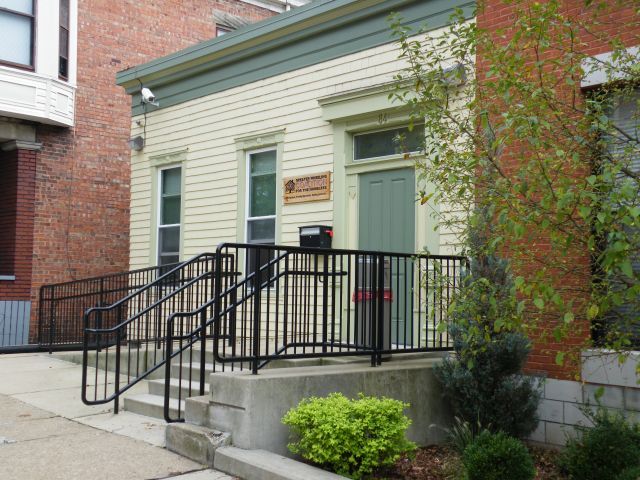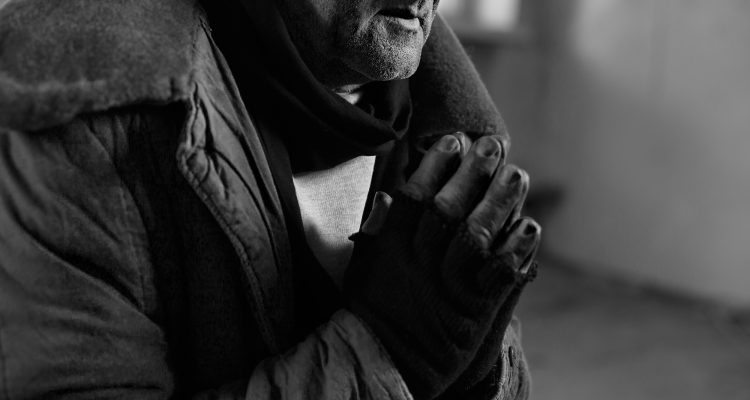The Greater Wheeling Coalition for the Homeless, located in the heart of East Wheeling at 84 15th Street, is currently celebrating its 30th Anniversary. Lisa Badia, its Executive Director, has been working for the Coalition since the 1990s. She has transformed the organization from an “extremely homeless and nomadic grass roots operation,” to a massive, multi-service institution offering diverse programs devoted to eliminating homelessness. Starting off in a cramped office in the basement of a YMCA with a staff of three and a shoestring budget of $43,000, the nonprofit organization has grown into one of the nation’s top ten homeless coalitions boasting a 95 percent success in placing its clients back into society. A peer review conducted by the West Virginia Department of Health and Human Resources stated, “It was a pleasure to watch the interaction between staff and residents. It was obvious that everyone is respected and treated with genuine kindness and caring.” The organization now serves the entire Northern Panhandle of West Virginia, comprising of five counties.

Lisa profusely apologizes for the messy state of her office. Scanning the interior, I find that an entire filing system of papers sits neatly in well-organized piles. Framed posters of bands ranging from Pearl Jam to more contemporary artists hang on the walls. She sits down as her cat stretches itself along the entire perimeter of her desk, and she begins. Graduating from Wheeling Jesuit University with a degree in marketing, Lisa dreamed of growing a business. She worked for a brief period in marketing and advertising agencies where she honed her skills in marketing products. Possessing a razor-sharp mind for business, she never imagined that her product would be pure, human compassion.
At age 27, Lisa’s best friend recommended her for a position writing grants at the Coalition. Grants are written proposals seeking foundation money from federal, state, and private institutions, stating an organization’s intent and strategy to fulfill a public need. Lisa explains that because grants are increasingly competitive due to diminishing available capital, winning funding requires incorporating data and research into direct and clear narrative writing. Currently, grants constitute 97 percent of the Coalition’s funding. Looking at a framed picture, she remembers writing here at her desk all night long till two in the morning with her son and Siberian Husky asleep on a white, fabric armchair tucked over in the corner behind her chair. The man responsible for steering Lisa’s career path from the private business sector to nonprofits fueled by social activism was a founding member of the National Coalition for the Homeless, Michael Stoops. A mentor to Lisa during a difficult time in her life, Stoops passed away just this year. She chokes back tears and remembers, “I really needed a dad figure, my parents died, and I was struggling with student loan debt at the time. He told me later, ‘Lisa, you’re the only executive I’d go to work for free.'” He imparted everything he knew to her from operating an effective organization built on trust to the intrinsic value of helping those who need it. She has learned from Michael, and from experience, that you cannot force compassion and aid upon the homeless. She leans back in her chair, unfolds her clasped hands, and nods, “I’m here. When you’re ready, come to me.”
The Greater Wheeling Coalition for the Homeless is unique because it operates as, “a one-stop shop.” Operating as the region’s primary service institution, it aids and provides opportunities for the homeless through matching an individual’s specific needs with the best program for them. For example, an individual may be too underemployed to afford housing. The Coalition would then place the individual in a specialized transitional housing program after gauging their degree of short term or long term need for housing assistance. The organization is proud of their diverse programs. These include: housing programs with individuals possessing children, no children, and disabilities, whether it be mental or physical. Also, they provide mock interviews, resume building, and lawyers who teach tenant law. Lisa observes the Coalition through a business lens where she is constantly looking to diversify their portfolio of programs and services. “We are a research based institution,” she says. Lisa explains that her organization must be ever vigilant in researching the national economy in terms of housing trends, the current rental crisis, and data on homelessness.
Generally, the public attributes drugs and alcohol as the main causes of homelessness. Multiple barriers consisting of lacking financial resources, disabling conditions, and the absence of a solid support system all conspire together in obstructing a homeless person’s re-admittance back into society. It is this Coalition’s mission to eliminate these barriers through tailoring success-driven services in helping their clients attain self-sufficiency. Responding to why she thinks the Coalition has become such a national standout, she answers, “I believe it’s because we’ve stayed true to our mission of creating long term solutions to homelessness and diversifying our portfolio. There is not one solution to homelessness.” Lisa concludes, “It is a pleasure to run, to see human capacity being built. I am continually humbled by this job.”
This Saturday, the 29th of July, the Wheeling Coalition will be hosting its 2nd annual fundraiser “Rock the Big House” at the West Virginia Penitentiary in Moundsville from 12:30 PM to 10:00 PM. The event will be complete with food, alcoholic refreshments, and an array of local bands as well as The Ten Band, a nationally renowned tribute band for Pearl Jam. Tickets are selling for $10 in advance and $15 at the gate. “Rock the Big House” will be crucial in helping the Coalition in establishing a stronger, visible relationship within the community. This is especially vital for the organization because it exists in an arena where many other similar groups, both government and private, are constantly being defunded and cut. Many of the local band members themselves are activists within the organization. Lisa works directly with local band members such as Jeremy Wright, the lead vocalist of Resistance 13, and Bill Edgar, member of StepDown and the VP of Huntington Bank. She remembers Jeremy asking her just after making her acquaintance, “Teach me about homelessness.” Lisa believes in Resistance 13’s message of love and community engagement, and finishes,”They are great friends to the Coalition.” The proceeds from the event’s sales will be reinvested back into the organization’s programs aimed at creating even better, more extensive programs for the homeless.


